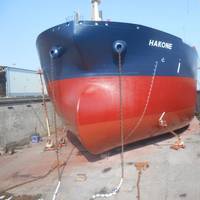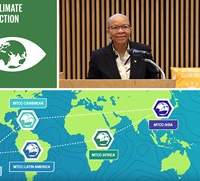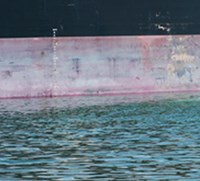
IMO
There are numerous organizations with the abbreviation "IMO," but assuming you are referring to the International Maritime Organization (IMO), here's a detailed overview:
International Maritime Organization (IMO)
The International Maritime Organization, often abbreviated as IMO, is a specialized agency of the United Nations responsible for regulating shipping. The IMO was established in 1948 and came into full force in 1959. Its headquarters are located in London, United Kingdom.
Mission and Objectives
The IMO's primary mission is to create a regulatory framework for the shipping industry that is fair, effective, universally adopted, and universally implemented. The organization focuses on several key objectives:
- Safety and Security: Establishing international safety regulations to ensure the security of life at sea.
- Environmental Protection: Setting standards to minimize the environmental impact of shipping activities.
- Legal Matters: Developing international maritime law to ensure efficient and equitable shipping practices.
- Technical Cooperation: Providing technical assistance and capacity-building programs, especially for developing countries.
- Efficiency and Facilitation: Streamlining procedures for international shipping to make maritime transport more efficient and cost-effective.
Key Conventions and Regulations
The IMO is known for several important international treaties and conventions, such as:
- SOLAS (Safety of Life at Sea): One of the most important treaties focusing on ship safety.
- MARPOL (Marine Pollution): International regulations aimed at preventing pollution from ships.
- COLREGs (Collision Regulations): Regulations for preventing collisions at sea.
- STCW (Standards of Training, Certification, and Watchkeeping for Seafarers): Setting qualification standards for seafarers.
- IMDG Code (International Maritime Dangerous Goods Code): Regulations for the safe transport of hazardous materials and dangerous goods.
Structure and Governance
The IMO consists of an Assembly, a Council, and five main Committees:
- Assembly: The highest governing body, composed of all Member States, which meets every two years.
- Council: Acts as the executive organ and is responsible for ensuring the functioning of the IMO.
- Committees:
- Maritime Safety Committee (MSC)
- Marine Environment Protection Committee (MEPC)
- Legal Committee
- Technical Cooperation Committee
- Facilitation Committee
Membership
The IMO has a wide membership, with around 174 Member States and three Associate Members as of 2023. These members are primarily countries with maritime interests.
Achievements and Impact
The IMO has made significant contributions to maritime safety and environmental protection:
- Reduction in Maritime Accidents: Implementation of rigorous safety standards has led to a marked decrease in maritime accidents.
- Mitigating Environmental Impact: Introduction of cleaner fuel regulations and restrictions on emissions has reduced the environmental impact of the maritime industry.
- Global Standards: The establishment of universally recognized standards has leveled the playing field, fostering fair competition and consistency across the global maritime industry.
If you meant another organization by "IMO company," please provide more context, and I’d be happy to share information accordingly.
- Phone: + 44 (0)20 7735 7611
- Web: https://www.imo.org/
IMO News
Tankers Defer retrofits as Record Freight Rates Beckon

Tankers that had been scheduled to install emissions-cutting equipment ahead of stricter pollution standards starting in 2020 have deferred their visits to the dry docks to capitalise on an unexpected surge in freight rates, three trade sources said.U.S. sanctions on subsidiaries of vast Chinese shipping fleet Cosco in September sparked a surge in global oil shipping rates as traders scrambled to find…
EU/IMO Project Drives Energy Efficiency
A global network of maritime technology cooperation centers has completed an impressive array of pilot projects over the past three years, helping to drive forward…
Chile Develops Maritime Transport Policy
Developing a national maritime transport policy is key for a country’s sustainable development, especially those with a significant maritime sector.The latest International…
Maldives Hosts Maritime Security Workshop
The International Ship and Port Facility Security Code (ISPS) is mandatory instrument addressing the safety and security of ships, ports, cargo and crew, says International…
EU/IMO Global Project Drives Energy Efficiency

The GMN global network of maritime technology cooperation centers has completed numerous pilot projects over the past three years, helping to drive forward the changes which are required to reduce GHG emissions from shipping. A global network of maritime technology cooperation centers has completed an impressive array of pilot projects over the past three years, helping to drive forward the changes…
France Conducts Training on Port Management
An intensive training on port management and operational efficiency was delivered to high-level officials and decision-makers from maritime and port authorities…
UK Focuses on Safety of Navigation
International Maritime Organization (IMO)'s rules and regulations for suppressing unlawful acts against the safety of navigation can be seen in the wider context…
Mexico Ratifies IMO Legal Conventions
The maritime authorities of the Government of Mexico have agreed to place a high priority on ratifying three important International Maritime Organization (IMO) legal conventions…
Addressing Invasive Species in Ships’ Ballast Water

The BWM Convention amendments formalizing the implementation schedule for the D-2 standard are now in force. Amendments to an international treaty aimed at preventing the spread of potentially invasive species in ships' ballast water entered into force on October 13, 2019.Ships regularly take on sea water, in tanks, to ensure their stability. Known as ballast water, this can contain many aquatic species, including in microscopic or larval form.
Workshop on Safe Handling Dangerous Goods
A variety of important measures must be applied to transport dangerous goods in packaged form and solid bulk by ship safely, says International Maritime Organization (IMO).According to the UN body…
Data Gathered from Demonstration Ships in Asia
Fifteen demonstration ships in the Asia region have, to date, provided 68,517 sets of data relating to ship fuel consumption and ship optimum trim, said International…
Carbon Capture and Storage Under Seabed
Carbon capture and storage under the seabed is recognized as one tool in climate change mitigation. An International Maritime Organization (IMO) treaty, the London Protocol…
Trinidad and Tobago Conducts Maritime Security Training
Trinidad and Tobago is the latest International Maritime Organization (IMO) Member State to receive maritime security training. A self-assessment and audit training…
Thailand Prepapres for Oil Spill
Supporting countries to prepare for contingencies is an important part of International Maritime Organization (IMO) 's capacity building work.Thailand is the latest…
Georgia Mulls Maritime Single Window
The maritime single window enables all information required by public authorities in connection with the arrival, stay and departure of ships, people and cargo,…
UN Hails Shipping Progress on Environment
In a cautious yet upbeat message at the close of the Climate Action Summit in New York, UN Secretary-General Antonio Guterres praised the progress made by shipping…
IMO Progressing in Global Climate Action
The UN Climate Action Summit in New York (23 September) is giving global leaders the chance to show the world concrete proposals and tangible actions being taken…
Latin America Empowers Maritime Women
International Maritime Organization (IMO), with support from Malaysia, has given fresh impetus to an important regional network helping to promote women in the maritime…
E. Africa Focus on Marine Environ Protection
International Maritime Organization (IMO) has been working with southern and eastern African countries to help implement marine environment protection measures contained…
Workshop on Clean Shipping in Red Sea
Measures for preventing air pollution from ships as well as energy efficiency requirements for ships are in the spotlight at a training event for eight countries in the Red Sea…


